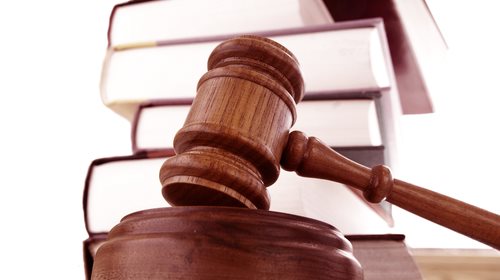
Where do I find a patent lawyer?
Patent lawyers (or agents) differ from conventional lawyers in a number of ways, not the least of which is that in order to become a patent lawyer, you must complete a specialized bar exam and have proven knowledge in a specific field so as to actually understand the nature of the patent. The patent bar exam is a two part exam, three hours each part with a total of 100 questions that test for knowledge of patent law. Any attorney that takes and passes the exam with a score of 70% or better can register as a patent attorney as argue cases before the US patent officials as well as advise patent seekers on “patentability” of their invention.
Where to look for an attorney
The US Patent Office maintains a searchable and sort-able directory of all registered patent agents and attorneys, including international ones at https://oedci.uspto.gov/OEDCI/query.jsp. This will give you the best range of choices and you are almost guaranteed that patent lawyers listed in this directory adhere to ethics codes and are up-to-date on legal matters concerning their specialty.
You may use this website to find an attorney. To do so, use the search box on top of all pages. You may also compare attorneys and ask free questions by clicking Find Attorneys on top of the page.
Do I need a specialist?
You need a specialist in patent law. Those who have not passed the US Patent and Trademark Office bar examination can only offer you advice at best and cannot help you defend your claim or file the necessary paperwork. The patent process is complicated and daunting for the unacquainted. It would behoove first time inventors to seek the services of a patent lawyer at least the first time through the process.
Evaluating Experience & Education
There are exceptionally stringent qualifications for patent lawyers. In addition to having admission to the state bar, they must also have the equivalent of a science or technology bachelor’s degree so that they may effectively assess the merits of a patent and understand what aspects of the patent seeker’s invention must be protected. The USPTO also states that patent lawyers and agents must have “good moral character and reputation.”
Generally speaking, patent lawyers that have passed the stringent regulations set by the USPTO will do an excellent job of explaining and guiding you through the system. It is important to note that patent agent have the same qualifications as patent lawyers, with the notable exception of not being admitted to the bar. They may fulfill the same functions as patent lawyers with the notable restriction on offering legal advice to the client such as suing for copyright infringement or challenging a USPTO ruling in court.
Personality & Values
You will entrust this patent lawyer with personal and confidential information, so it is essential that you have a bond of trust with this lawyer and that he or she abides by a professional code of ethics, usually set by the bar association of that jurisdiction. It is also important to get all agreements in writing including disclosure of fees and agreements.
Communication is also important to maintaining trust and navigating the complicated patent process. Many patent lawyers will give you a direct number to reach them at if you have any questions or concerns about your case. If an attorney makes it difficult to talk or meet with him, you may want to reconsider your decision as a lack of communication may jeopardize your patent claim.
Even with the guidelines on ethics issued by the patent office, you must be vigilant when dealing with some lawyers that lack a solid record of integrity and ensure that your dealings with them are fair and transparent. Be aware of unreasonable fees, illegal activity or coercion on the part of the patent attorney. If necessary, you may report unethical behavior to the USPTO which will prevent a similar experience for another patent seeker needing legal advice.
Preparing for an appointment
Before meeting with a lawyer to perform any aspect of patent law, one should gather relevant information about their invention or idea, such as schematics, partners and intellectual property so that the lawyer can assess which services you need. For those that simply need a document completed or filed, there may be a flat fee available which eschews hourly or retainer fees with the understanding that you will not require the dedicated services of the lawyer.
You will need to explain your invention thoroughly in your patent application, including illustrations and visual aids in addition to technical documents explaining the structure and function of the invention.
You must aim to select a patent lawyer with specialized knowledge in the field the patent belongs in. With proper knowledge, the lawyer can help you rewrite the proposal to make it stronger and protect against potential flaws or pitfalls that could stall or terminate the approval process.
Decide in advance how you would prefer to pay the lawyer for his or her services. If necessary, you will need to formulate a retainer agreement, in accordance with state regulations. Alternatively, you can opt for hourly rates and flat fees for using the lawyer’s legal services.
Rates, Fees & Retainers
Chances are you will not need to place the lawyer on retainer unless your claim is being disputed. For those inventors that cannot afford to keep a lawyer on dedicated retainer, the best and most popular option is to pay the patent lawyer a flat fee for performing legal services, such as helping you file the patent paperwork.
While consulting a patent lawyer, hourly rates may be accrued from using the lawyer or support staff such as paralegals. There may be other fees for creating and copying documents as well as filing them with the proper authorities. It is especially important to be aware of those fees.
Interviewing your attorney
The following questions are important when interviewing your attorney:
What fees do I pay for retaining your services?
– Am I paying for the use of a paralegal or other service in your office?
– Are there fees for the reproduction of documents?
– Can I have that in writing?
Can I contact you directly if there is a problem?
Will you allow me to examine your credentials?
What do you normally specialize in?
Are you admitted to the bar in this jurisdiction?
What happens if my claim is disputed by another party?
If you cannot handle my case, can you refer me to a lawyer that can?
Can you help me assess potentially liabilities in my patent claim?
Patent lawyers and patent agents are both licensed to prepare, file, and prosecute patent applications. There are only about 30,000 patent lawyers in the United States, with the largest concentration in California, New York, and Texas. This is a fairly specialized field of law, and in order to work as a patent lawyer, the attorney must be licensed through the United State Patent and Trademark office. This includes the patent attorney passing the USPTO registration exam.
Patent lawyers can help protect your intellectual property. A patent is a must for any type of new product, technology, or idea. If you don’t have a patent, someone else can file it and get credit for the work. A patent lawyer can help you with each part of the process to register your patent.
Patent lawyers are a very specialized part of the legal system. Some of the patent lawyers only work on these types of cases and nothing else. If the paperwork for a patent is not filed correctly, the filing may be rejected. This means the opportunity still exists for someone else to file the same patent paperwork. It’s essential that you have a patent lawyer that will work tirelessly to get you what you need done.
If you need a patent lawyer, start your search online or in the yellow pages. You’ll notice that there aren’t as many patent lawyers available as there are for some other areas of the law. If you know someone else who has filed for a patent, contact them for recommendations.








